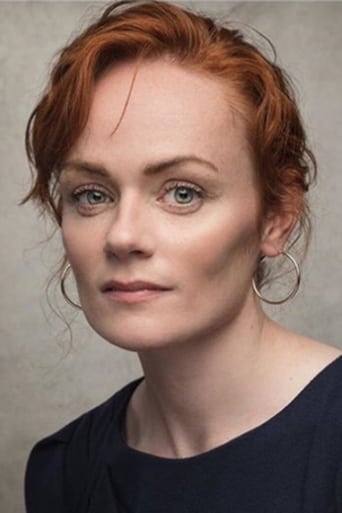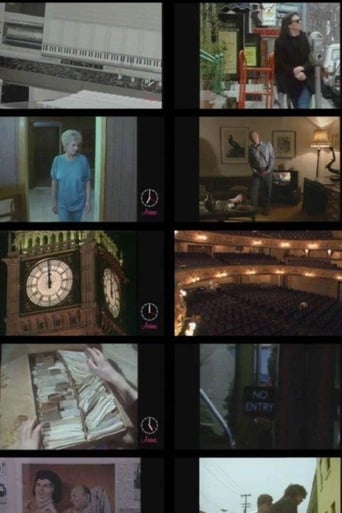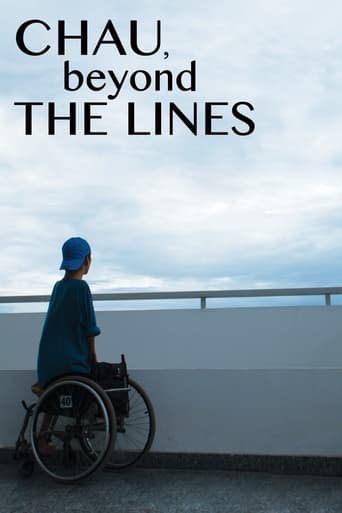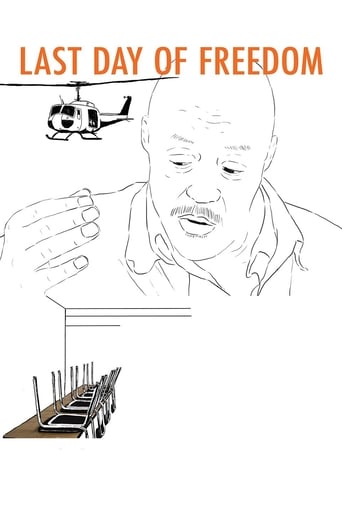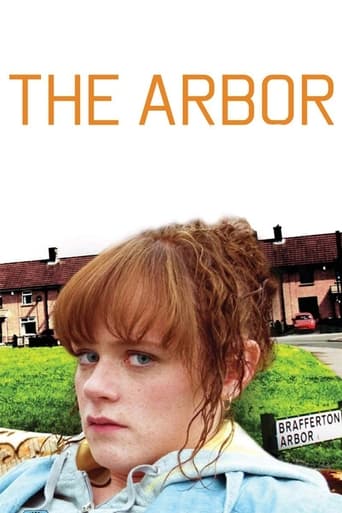
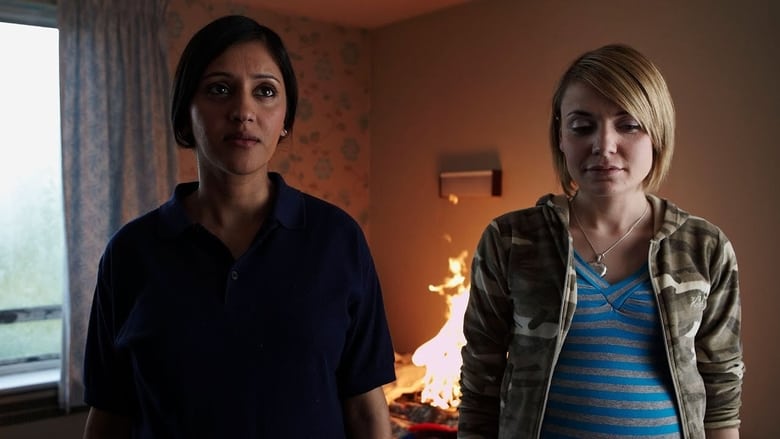
The Arbor (2010)
The lives of the late Bradford playwright Andrea Dunbar and Lorraine, one of her daughters, and the community of Bradford, in the 30 years since the 18-year-old Andrea penned a play about growing up in the community titled "The Arbor".
Watch Trailer
Cast
Similar titles
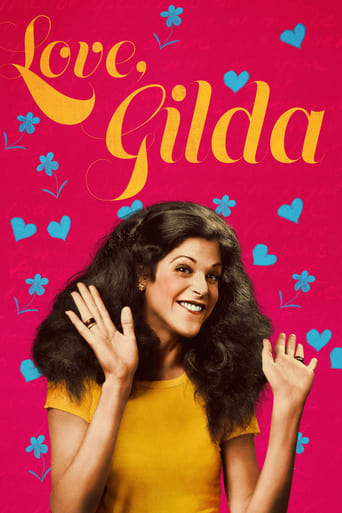
Reviews
I like the storyline of this show,it attract me so much
Very very predictable, including the post credit scene !!!
Powerful
Although I seem to have had higher expectations than I thought, the movie is super entertaining.
I go into movies with no expectations...also I had no clue who was Andrea Dunbar so that really didn't help. I felt like I just wasted an hour and half watching this film. Nearly all positive reviews comment on how creative Clio Barnard is with the verbatim theater, AKA "lip synching". Sure, it's interesting for a few minutes but the novelty wore off...it would have achieved the same results if they used the original footage of interviews. Perhaps the techniques were too artsy for me.This "docudrama" focused on Andrea then transitioned to Lorraine...both figures are equally tragic but it makes me sad how irresponsible people are, especially with children involved. Neither women are fit to be mothers...it's like an extended episode of a bad reality TV show where the cameras follow people who are trainwrecks. Yes, I realize alcohol and drug addictions consume lives but they have no one to blame but themselves. It's hard to pull for any of the characters.The story itself is very slow moving. The only bright moment was Lorraine dancing on top of her dad's car...it was a sweet moment of innocence. The film would have been better served if it's half an hour shorter and played on PBS.
By using actors who are lip-syncing interviews of actual people in Andrea Dunbar's life, this film pushes the documentary genre completely into the dramatic cinema field, with very interesting and moving results. Mix in stagings of her plays in the actual British housing projects where they were set, and vintage TV footage, you get a fascinating very creative mix.It's also a very enlightening portrait of a woman who used art and the written word to pull herself out of the slums, but failed to change as a human being, basically living the life of the housing project trash that she wrote about, abusing her children as a result.A fresh and very cinematic take on the documentary form. Check it out.
Location shots, real people, and actors are deployed in a seamless amalgam in this recollection of of the talented but short-lived alcoholic working-class playwright Andrea Dunbar, from Bradford, West Yorkshire. Filmmaker Clio Barnard first spent two years recording interviews with Dunbar's family and friends,. Then she staged actors lip-synching the interviews as monologues, sometimes in a group scene -- a technique known as "verbatim theater" that arguably works more seamlessly because of Bernard's use of filmed settings. Barnard also staged parts of one of Dunbar's plays out near "The Arbor," ther part of the Yorkshire housing estate where Dunbar grew up and of which her plays speak. This is also the name of Dunbar's first play. Another one, Rita, Sue and Bob Too, was made into a reportedly excellent film. After a while, thanks in part to the excellent editing of Ole Birekland, you don't know who's the real person and who's an actor (because vintage footage of the people is there too). This creates a kind of Brechtian "Alienation Effect" that paradoxically makes it all more real and memorable. In the course of compensating mentally for shifts of format and perspective, you wind up projecting yourself into Andrea Dunbar's world. It's a tough trip. Dunbar grew up in the Butterfield Estates during the decline of the textile mills, writing her first play at fifteen. She was already experiencing the prevailing racism, alcoholism and domestic violence. Eventually, by the time she died at 29 of a cerebral hemorrhage, she'd had become a heavy drinker and had three children by three different fathers. The eldest, Lorraine, played here by the sad- eyed, insinuating Manjinder Virk, was a dark-skinned, pretty girl whose dad was of Pakistani origin. She was to write no plays, but otherwise would duplicate her mother's unfortunate model of children by different fathers, drug addiction instead of alcoholism, and imprisonment for the causing the death of her child by extreme negligence. Editing is a key factor here, but all elements are so smoothly handled you become unaware of the many layers and modes at work. Over-titles identifying the main speakers when the first appear also help to create the desired confusion. In news footage where the family is interviewed after Andrea's first London success, her real dad bears a quite striking resemblance to the father in the staged play. At the play, many people, presumably current residents of the estates, stand around to watch -- another way boundaries are broken. Ronnie Schieb calls this "a must-see entry in the ongoing evolution of cinematic formalism," but this "formally inventive" and "socially revelatory" exploration, neither formal nor abstract in the playing out, never seems anything but real, down to the sometimes almost impenetrable accents of the recorded speakers whose voices flow through the scenes. Very good foreground and ambient sound contributes to the seamless effect, of course. Credit here to Dolby Digital sound designer Tim Barker and re-recording mixer Richard Davey.There is a Rashomon-like aspect as one gradually watches Andreas's story unfold from multiple sources, including the various fathers of her children, and the most personal moments come with Lorraine's unfolding confessions. As Peter Bradshaw of The Guardian wrote about the film last spring, Barnard's "technique produces a hyperreal intensification of the pain in Dunbar's work and in her life," and this pain becomes most vivid as we realize that in Lorraine's life Andrea's tragedy "was replicated, almost genetically." Bradshaw makes another good point: Dunbar's story, and her success as a teenage playwright in Max Stafford-Clark's Royal Court, challenges a lot of what we assume about gritty realist theatre or literature from the tough north," because the plays are usually produced "by men whose gender privileges are reinforced by university." They become stories of how they got out. But Dunbar never got out. The Arbor, Barnard's debut feature, got a raft of nominations at BAFTA and the London Critics Circle, and two actual awards, one at Sheffield's documentary festival (Innovation Award) and the British Independent Film award for Best Achievement in Production. It's not a cheerful watch, but it's a very compelling one and a remarkable accomplishment by Clio Bernard -- as well as by the principal actors, Manjinder Virk, Christine Bottomley, Neil Dudgeon, Monica Dolan, Danny Webb, Kathryn Pogson, Natalie Gavin, Jonathan Haynes, Jimi Mistry, George Costigan. Try as you may, you will not spot their lips out of sync.The 94-minute The Arbor won Barnard a best new documentary filmmaker prize at 2010's year's Tribeca Film Festival. It will get a theatrical U.S. release by Strand in April 2011. Seen and reviewed as part of the San Francisco International Film Festival, April 2011.
If you've seen Alan Clarke's wonderful 'Rita, Sue and Bob Too!' (UK 1986), you'll have some idea of what to expect from 'The Arbor'. "The Arbor" is a small part of the Buttershaw Estate in South Bradford where Clarke's film was set. Clarke's film was adapted from her own play by Andrea Dunbar, a 20 year-old single mother in 1982 when the play first appeared. She had written her first play also called 'The Arbour' when she was still at school and a third, 'Shirley', in 1986 before she died suddenly from a brain haemorrhage aged just 29.Knowledge of 'Rita, Sue and Bob Too!' will only help a little, however. This film, 'The Arbour', is part inspired by but is not an adaptation of Dunbar's play. Instead it is a form of documentary about Dunbar and her personal legacy that turns out to be mainly about the equally difficult life of her first child, Lorraine.The film is written and directed by Clio Barnard who has Bradford connections. She visited the Buttershaw estate in 2009 and interviewed members of the extended Dunbar family and some other residents. She then borrowed the idea of hiring actors to lip-synch the recorded interviews (in A State Affair, a play by Robin Soans about the Buttershaw estate, actors spoke the words of the people Dunbar knew). Scenes with the actors were shot on the estate and in a London studio. They were edited together with two other kinds of material – scenes from 'Rita, Sue . . .' and from arts and news programmes about Andrea Dunbar plus scenes from 'The Arbor' play, acted out on the 'green' on the estate.So, what does it all mean? I'm honestly not sure. Technically it is very well put together. I found myself moved by several scenes. At other times I felt like I didn't want to watch. I think that my personal preference is for a social-realist drama, but I recognise that the approach here is very powerful. My only real problem was in the casting of George Costigan as one of the actors reading the words of one of the fathers of Andrea Dunbar's children. Costigan was 'Bob' in Rita, Sue . . . and I found this an intertextual step too far.Clio Barnard has, I think, previously produced video installations and sometimes I felt that I was viewing an installation. I found the initial stages confusing as they moved backwards and forwards in time, but eventually the film developed a distinctive narrative line focusing on Lorraine and this made it more like a traditional documentary film.The Arbor appears to be attracting audiences to the National Media Museum's cinemas. Bradford audiences will probably have a rather different take on the film than the London critics who celebrated its success in winning two prizes at the London Film Festival this week.


